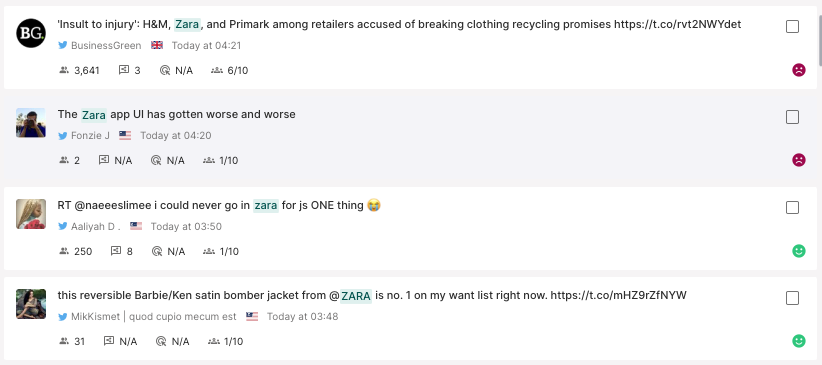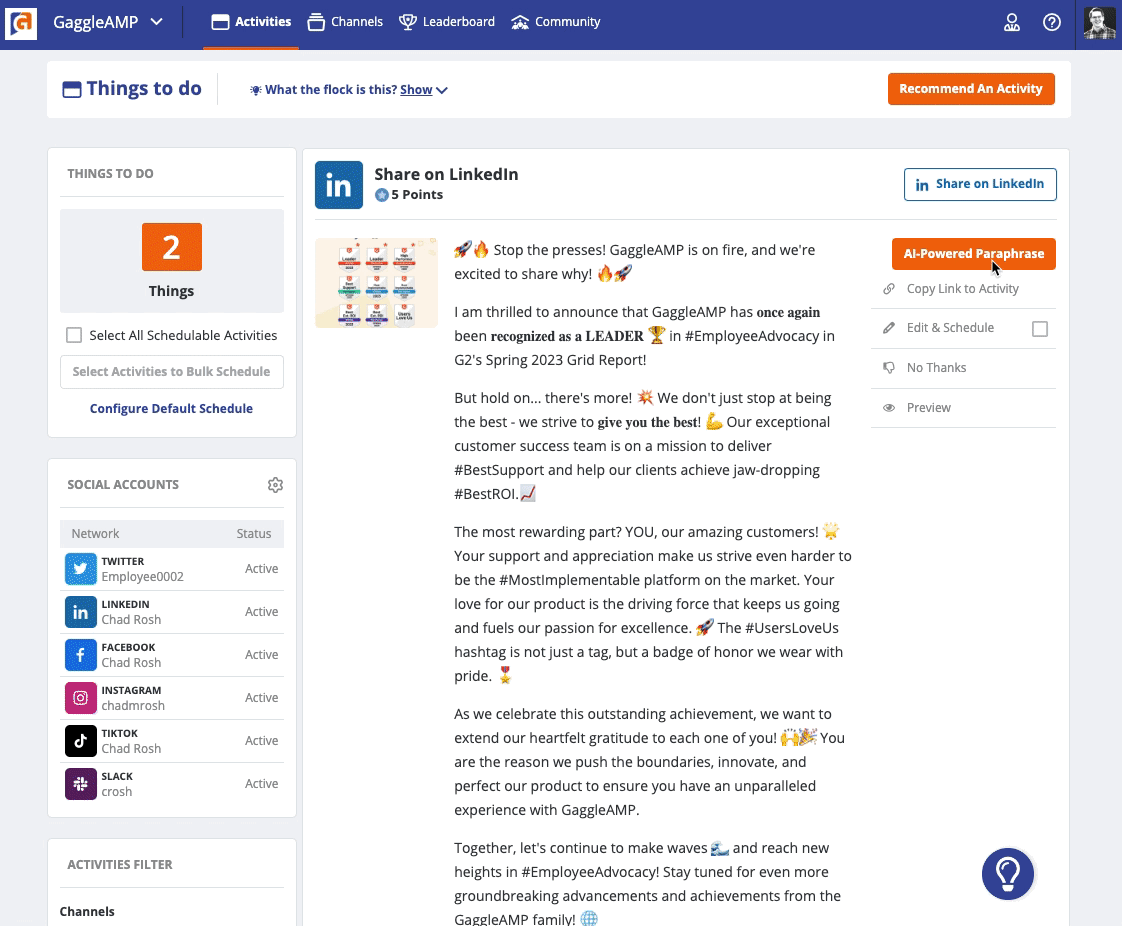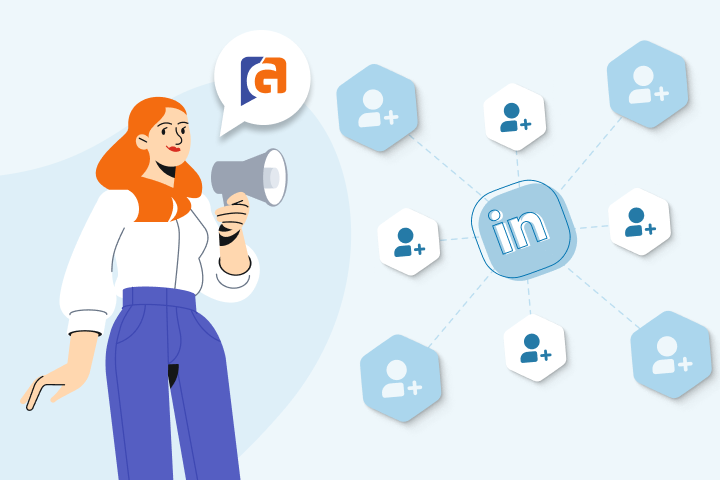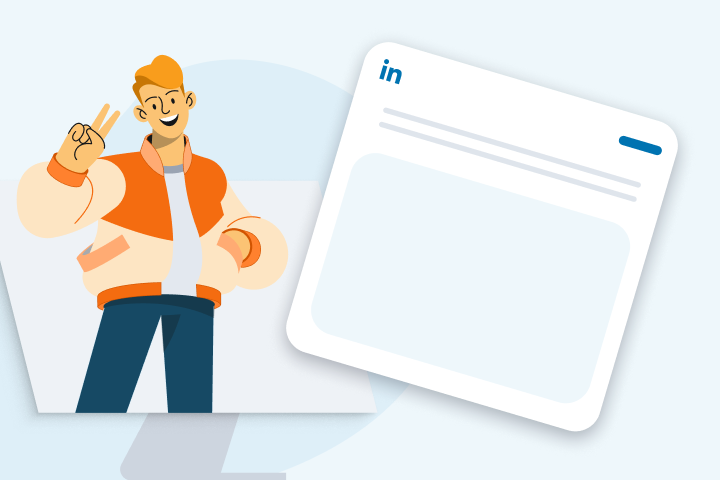Benefits and Risks of Using AI for Social Media Marketing
The use of artificial intelligence (AI) has exploded in recent years. It’s estimated that the global AI market will reach a $2 trillion valuation by 2030. If you’re not already implementing AI into your social media marketing strategy, now is the time.
At its core, AI is a technology that has the potential to revolutionize how businesses operate. By serving to augment human teams and automate time-consuming manual processes, brands can potentially save time, money, and resources that can be allocated to other projects.
As a result, many brands are turning to AI to help enhance their marketing strategies and to make their social media processes more efficient. However, as AI grows in both influence and implementation, we need to look at AI objectively, understanding the potential impact it can have, both positive and negative, on brands.
While AI tools can help automate and streamline many social media advertising tasks, there is a downside to using them. Besides the obvious fear of job positions being eliminated by AI, there are also the risks that AI poses to branded content, audience engagement, and customer service.
In this article, we’ll break down what AI is for social media marketing, explore the pros and cons of using AI in your social media marketing strategy, how to use AI for social media marketing, and how to move forward strategically with AI.
Ready to get started? Let’s first dive into what AI is for social media marketing.
What Is AI for Social Media Marketing?
Artificial intelligence (AI) is technology that mimics human intelligence to perform tasks. Savvy marketers are using AI to help streamline, scale, and create by automating low-level social media management work, scaling social media strategies, and producing data-driven posts and campaigns.
Ironically, social media marketers who have embraced AI are using it to produce more authentic, human social media marketing. AI’s ability to gather and discern vast quantities of data faster than human analysts, enables it to produce tailored content that is valuable and resonates with target audiences.
Now let’s take a look at some additional benefits of using AI for social media marketing as well as the risks.
What Are the Pros and Cons of Using AI for Social Media Marketing?
When thoughtfully applied, Al has many benefits for social media marketing. However, it’s important to keep in mind there are cons to using AI as well. Let’s first take a look at the benefits of using AI.
The Benefits of AI
Using the right AI tools can help your brand with building social media reach, deepening customer engagement, making informed branding decisions with data, and driving conversions.
Some additional AI benefits are:
- Efficiency. By automating repetitive administrative and analytical tasks, AI frees up social media marketers to focus on high-value tasks like top-level strategy, conceptual brainstorming, etc.
- Scale. AI can analyze vast amounts of data, aggregating it in a matter of seconds in comparison to human analysts. For example, social media managers are using it for social listening, which requires scanning the internet on a large scale to see what people are saying about your brand.

Source: Determ
- Optimization. Marketers can use a spectrum of AI tools and software to gather and analyze data to optimize content, workflows, and other processes for their brands.
- Personalization. By leveraging it carefully, AI can enable brand marketers to create ‘structures’ or overviews of text, images, or videos, that can then be sub-edited and tweaked by marketers to create personalized content for their target audiences.
The Risks of AI
While there are many benefits to using AI, brands who over-automate and entrust too many tasks to AI algorithms without monitoring can potentially face risks.
Here are some potential risks of using (and relying on) AI without supervision:
- Inauthentic Tone. AI-generated content often lacks your brand’s voice that marketers know how to emulate. Excessive use of AI content can seem robotic and insincere to your audience. Brands must take care to maintain that pivotal brand voice that resonates with their audience, tweaking AI produced content (if necessary).
- Surface-Level Engagements. The benefit of AI chatbots is the ability to respond to customer queries at scale. However, while some AI chatbots integrate sentiment analysis, most lack high-level emotional intelligence and empathy. As a result, AI chatbots can’t truly connect and form meaningful relationships with customers, which fosters brand loyalty. There’s also the risk of potentially saying the wrong thing because an AI chatbot can’t decipher a human customer’s tone or response.
- Image Copyright Infringement. Some AI-image generation tools create images by incorporating elements from available images and artwork on the internet. This raises copyright infringement issues and ethical concerns in presenting AI-created work as original branded content. As a result, brands can face hefty copyright infringement fines and a negative hit to their brand trust and credibility.

Source: An image created by Stable Diffusion, and AI tool, showing a recreation of Getty Images’ watermark.
Image: The Verge / Stable Diffusion
- Algorithm Bias. Also known as machine learning bias or AI bias, some AI algorithms reflect human bias, which is problematic in terms of representation and diversity. If these algorithm biases go unchecked and are not corrected, they can contradict brand values, spread misinformation, and alienate audiences.
- Privacy Problems. AI collects and analyzes large amounts of user data. So, when there’s a lack of AI data collection transparency, this raises red flags for those concerned about data privacy and security. Businesses must be transparent about their data collection and protection processes with their audience, ensuring that their use of AI won’t land them in hot water with regulators.
Now that we’ve addressed the pros and cons of using AI for social media marketing, let’s dive into how to actually use AI for social media marketing.
How To Use AI for Social Media Marketing
The allure of AI is its ability to streamline tasks, and it’s no secret that social media marketing is a time-consuming strategy. There’s audience research, content creation, content planning, content scheduling, engagement, and ongoing analysis and strategy refinement.
So, how do you determine which social media marketing tasks are better off in the hands of AI?
Here are a few ways that AI can help streamline and optimize your social media marketing efforts:
- Content Creation. By leveraging it carefully, AI can enable social media marketers to streamline their research process, generate content ideas for different social channels, and personalize content based on audiences’ interests and preferences.
- AI Paraphrasing. AI-powered paraphrasing can digest and reword content on various social media platforms to create authentic and consistent posts aligned with brand identity and messaging. In turn, this can improve shares, clicks, and engagement.

GaggleAMP’s AI-powered Member paraphrasing in use to diversify the text shared by a Member without losing the sentiment of the original activity.
- Employee Advocacy Automation. Employee advocacy leverages your employees to promote branded messages via social media platforms for your company. Using an employee advocacy platform like GaggleAMP can help keep employees consistently engaged. Plus, GaggleAMP’s AI-powered paraphrasing technology can help you transform and re-word content to give your team unique and authentic content to share on social media.
- Leverage Data for Optimization. AI can analyze vast amounts of data, aggregating it in a matter of seconds. As such, social media managers often find innovative uses for AI when executing social listening and engagement-based tasks that require data-driven analysis.
- Brand Monitoring. AI-powered sentiment analysis tools can monitor brand mentions across social platforms to understand real-time reactions, saving marketers hours of manual link crawling. This is particularly helpful in tapping into trending topics as well as addressing any potential issues
- Customer Service. For social media marketers who wear many hats, AI can help take basic customer service queries off of their plate. AI chatbots and digital virtual assistants can handle routine customer queries on social media, answering common questions and resolving first-tier issues quickly.
How To Move Forward With AI
While businesses are exploring ways that AI can be seamlessly rolled out for the benefit of their users, social media marketers should continue to be cautious.
When businesses offer all-inclusive AI tools that can autonomously complete a range of technical tasks from ad deployment to security validation and pen testing, these tools should be carefully considered and inspected before deploying. As a result, brands and social media marketers need to:
- Set clear parameters for guiding AI tools to perform specific, siloed tasks.
- Be selective and strategic in AI tool deployment.
- Offer AI training for employees who will be using and monitoring AI tools.
- Analyze and assess AI’s efficiency regularly (how often will vary by brand).
- Guide AI’s continued use and lateral movement across the business.
- Inspect any AI tools you adopt to ensure they don’t leave online systems, social channels, or customer data vulnerable.
- Ensure total transparency when using any AI-generated tools to maintain accountability.
When thoughtfully and ethically applied, AI can be a powerful asset for a brand’s social media marketing efforts. However, it’s important to not get carried away with AI and to not be intimidated by it.
Remember AI should complement humans, not replace them outright.
Ready to Supercharge Your Marketing Efforts With AI?
Using an employee advocacy platform like GaggleAMP can help supercharge your social media marketing efforts. To learn how GaggleAMP helps automate employee advocacy, schedule a demo today.










